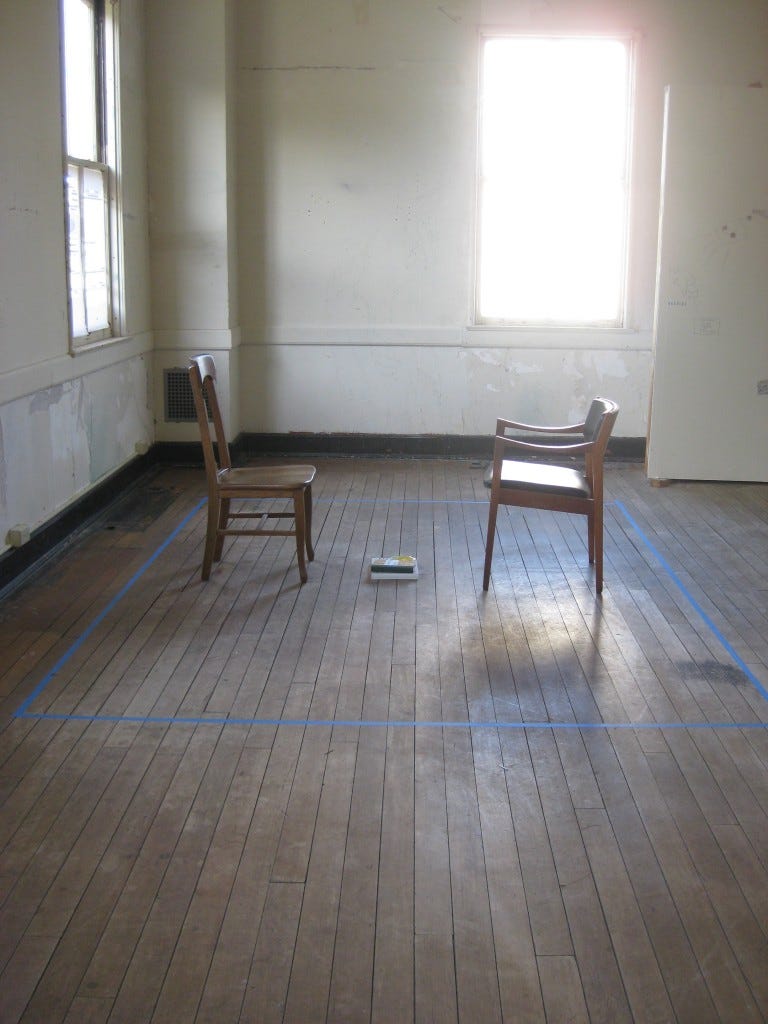Nothing is Hidden, Part 2
Explorations in Buddhist thought, Psychoanalysis, and Literature
There are three spots available in the workshop I’ll be teaching with my dear friend, Erica Ehrenberg.
Erica’s poems, and her writing practice itself have been an abiding inspiration. So, naturally, earlier this year when she began to offer a series of workshops exploring literature and psychoanalysis as she was completing her psychoanalytic training, I said, sign me up!
Here’s a note I wrote in 2015 about Erica’s poems for a piece in Diagram.
Erica Ehrenberg writes densely infinite poems, their strangeness the strangeness of what is right before our eyes. I've been reading Erica's poems, listening to them on the phone, for over a decade, and still I am never prepared for what they hold. An astonishingly fine-tuned perception—psychologically astute, scientifically precise, metaphysically nimble—is in play in these poems. Her poems encompass massive scale shifts in the scope of a few lines, or a few syllables.
The temporal dilation I feel as I read Erica's poems brings to mind the art historian David Joselit's characterization of paintings as "time batteries," or "exorbitant stockpiles" of experience and information. But of what order is the information we find in Erica's poems? And how exactly did she come by this information? This is the constant question and miracle of these poems.
Phil Levine remarked once upon reading a poem Erica brought to our workshop at NYU, "I need to spend more time in Erica's world." Her sights are trained on what is almost too subtle to speak of, that which is, to borrow a phrase from Flann O'Brien, "nearly half the size of ordinary invisibility."
There's a deep sanity, at times a tectonic humor, in Erica's poems that comes from meeting discomfort so directly no space remains between experience, instinct, and language. When I say discomfort, I include joy along with grief; I say it in celebration of the inquiry these poems undertake so thoroughly into the hairsbreadth fit of our idea of living and of actual life.
And within many conversations earlier this year, we started to dream up a workshop to teach together, continuing to explore the space of psychoanalytic and literary texts and weaving in facets of Buddhist texts and practice.
Here’s the workshop description:
N o t h i n g i s H i d d e n
Explorations in Buddhist thought, Psychoanalysis, and Literature
pt. 2
Erica Ehrenberg & Genine Lentine
Thursdays | 12 - 1:30 EST
May 22 - July 31 2025
10 sessions, No Class: July 3
‘To be creative a person must exist and have a feeling of existing, not in conscious awareness, but as a basic place to operate from… Creativity is then the doing that arises out of being’ –Winnicott, Home is Where We Start From
Psychoanalytic, Buddhist, and literary works indicate a vast internal expanse for which each discipline attempts to find language. However abstract the terms for describing variations of this space may seem–the unconscious, emptiness, or Keats’ concept of “negative capability,” our psychic contact with this terrain in all cases has powerful implications for affecting how we thrive and how we suffer.
This is a course rooted in a commitment to the paradox of exploring through language that which resists language. In bringing together Psychoanalytic, Buddhist, and literary texts, it’s not just that we now have the tools each discipline offers, but the very gaps between them become generative in themselves.
We are excited to engage each of the elements in this course as a lens and a companion in thinking through each of the other elements.
This is, at its heart, a writing course, a place to begin or continue an inquiry.The texts are starting points, provocations, company, support, in your own writing/clinical work
The Buddhist readings are a selection of texts, drawn from different traditions, that have been meaningful to each of us or that have specific relevance/resonance to other readings, etc. We’ve included some resources in the syllabus if you’d like to explore a meditation practice dharma talks, etc.
Through writing exercises designed in response to the readings, we will explore the forms Buddhist thought, psychoanalysis, and literature have found to approach what is both unsayable and more real even than what we call “reality.”
The goal will be to generate creative work that emerges from this exploration, a seed for both creative and clinical work. We will share the pieces in a workshop format, along with discussion that will mine the relationship between form and content in the works we read, and in each participant’s particular voice.
Thursdays
12 - 1:30 EST | Zoom
10 weeks: May 22 - July 31, 2025 [July 3: no session]



